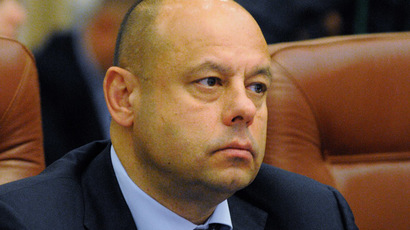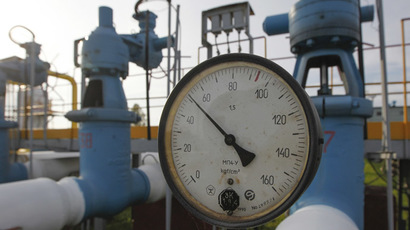Ukraine's multibillion-dollar gas debt: Who pays?
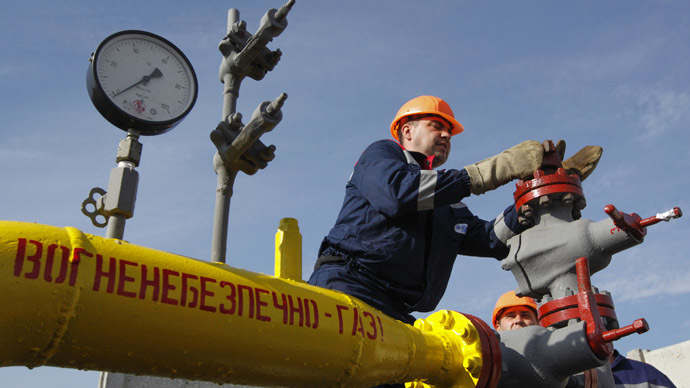
Ukraine plans to buy $770 million worth of gas (2 billion cubic meters) from Russia this winter to keep the heat on, but before that, they must pay off $1.45 billion in debt. The question is: who is going to pay the bill?
All three parties, Russia, the EU, and Ukraine met in Brussels on Tuesday and confirmed Kiev will pay $385 per 1,000 cubic meters of Russian supplied gas through the end of March. Before Ukraine can start purchasing gas, they need to pay off $1.45 billion in debt.
“There’s one obstacle: Ukraine failed to pay for Russian-supplied gas for seven months,” Oettinger said Tuesday. It will be difficult for Ukraine to find a benefactor, since, as Oettinger pointed out, its credit history is less than stellar. The economy is in ruin and may already need extra IMF money to stay afloat.
READ MORE: Ukraine's economy contracts 4 times faster in Q2, losing 4.7%
So where should Ukraine get the money from?
1. EU Energy Commissioner Gunther Oettinger suggests the EU become a broker between Ukraine and Russia.
“If Naftogaz can't pay, another European company may buy
Russian gas and then resell it.”
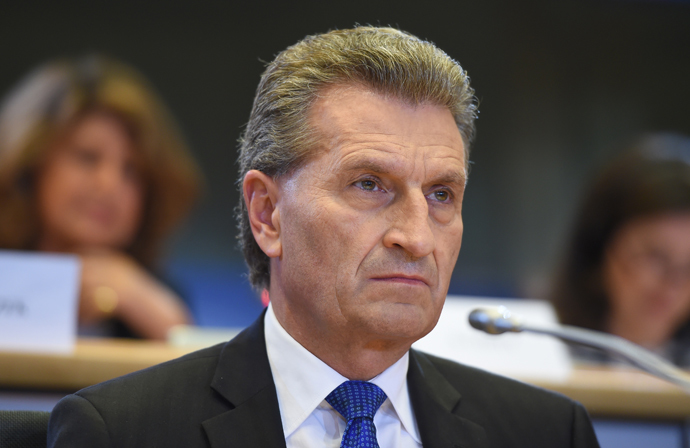
“It is also possible that the Russian gas transit tariff can be used as gas payments,” Oettinger said.Russia sends more than 80 billion cubic meters of gas to Europe through Ukraine, and each entry/exit point has a different tariff, ranging from $14 to $45 per 1,000 cubic meters. The question of payment for Russian gas remains key, according to Oettinger.
2. The CEO of Gazprom, Aleksey Miller, is not pleased with Oettinger’s cavalier suggestion and said only Gazprom can sell Ukraine Russian gas, not Europe.
“We will not sell gas to Ukraine through a third party.”
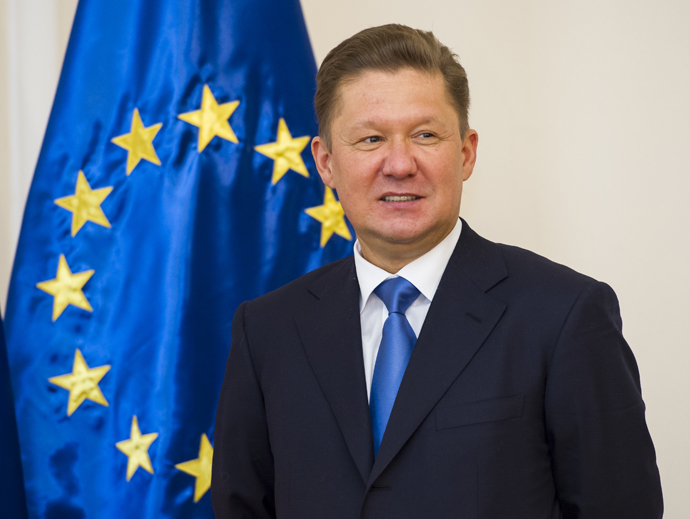
Miller said Europe cannot resell gas to Ukraine, since all gas is supplied under specific contracts with each country, and enters at different delivery points.
Russia turned off gas supplies to Ukraine in June over a pricing dispute and the debt, and is demanding repayment of at least $3.1 billion before deliveries are resumed.
3. Ukraine's Energy Minister Yuri Prodan says they are ready to pay for future gas, but not for the $3.1 they owe Gazprom.
“We are ready to make an advance payment, but we haven’t yet settled the way to pay our $3.1 billion debt.”
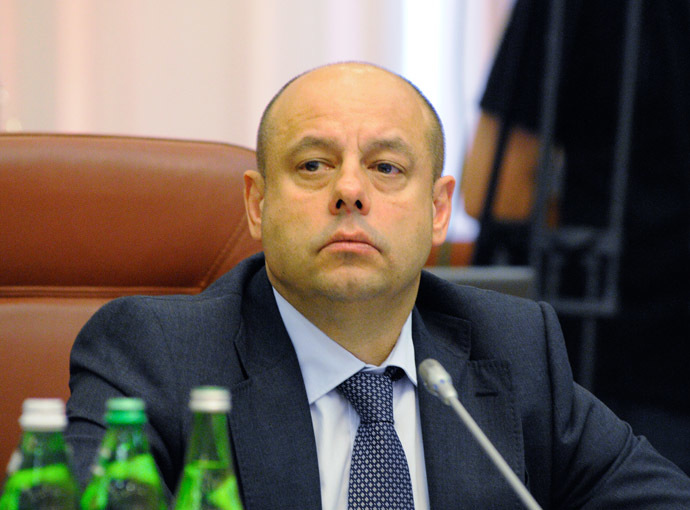
Naftogaz, Ukraine's national oil and gas company, owes Gazprom $4.5 billion in total, at least $3.1 billion before the new year, and $1.45 billion before they can start buying gas again.
4. Either way, Russia wants Europe to come up with the cash, and soon, says Russian Energy Minister Aleksandr Novak.
“Possible sources include guarantees from first-class European banks, bridging loans, funds from the European Bank for Reconstruction and Development, or the European Commission.”
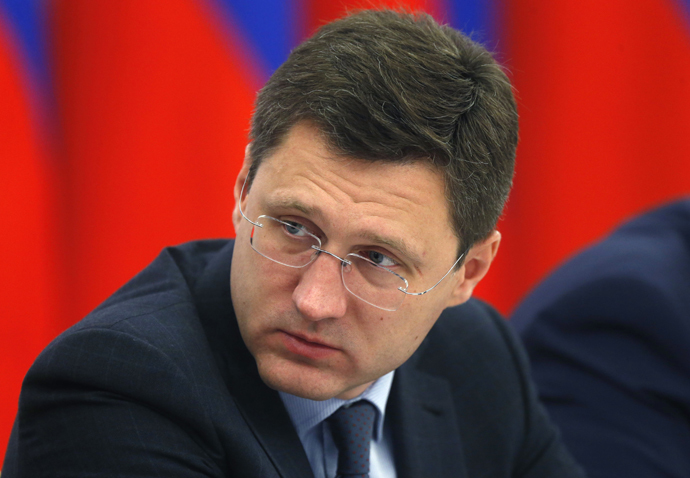
Novak says Kiev will purchase 2 billion cubic meters of gas, or $770 million worth from Russia, as well as another 2 billion from neighboring European states.
"If Europe gives them the money, then gas will flow," Novak said at an energy forum in Moscow Wednesday.
The last stumbling block in the negotiations is simply a matter of money. According to Novak, the deal could have been signed on Tuesday if Kiev could show they are financially solvent enough to pay for future deliveries and debt.
5. Vladimir Putin says Russia has given Ukraine enough financial cushion over the years, and now its Europe's turn.
"In this situation, our European partners must give Ukraine a shoulder to lean on, and help."
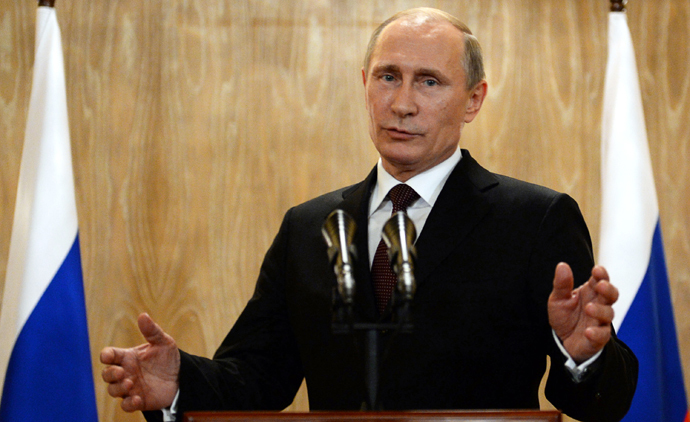
6. So far gas to Europe is still flowing, but the shut offs in 2006 and 2009 over Ukraine’s debt have Angela Merkel calling for collective action.
"Everyone must contribute.”
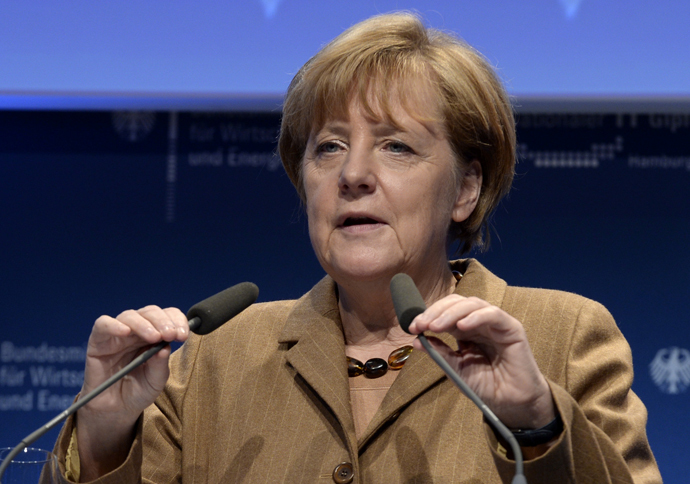
Including Slovakia, the Chancellor said after a meeting in Bratislava. Germany depends on Russian gas for 25 percent of its energy needs, and Slovakia gets more than 80 percent of its natural gas from Russia. Slovakia has been pumping reverse flows to Ukraine to make up for the Russian shortage, and may pump another 1-2 billion cubic meters this winter, according to Prodan.
Both Russian energy officials and Gazprom heads have warned against the illegality of reverse flows, as they violate Gazprom contracts, which don’t allow a country to re-export gas.
7. Ukrainian President Petro Poroshenko is looking right back at Merkel for the money.
"We have several options, ranging from International Monetary Fund finance to international financial organizations that could support the deficit of Naftogaz.”
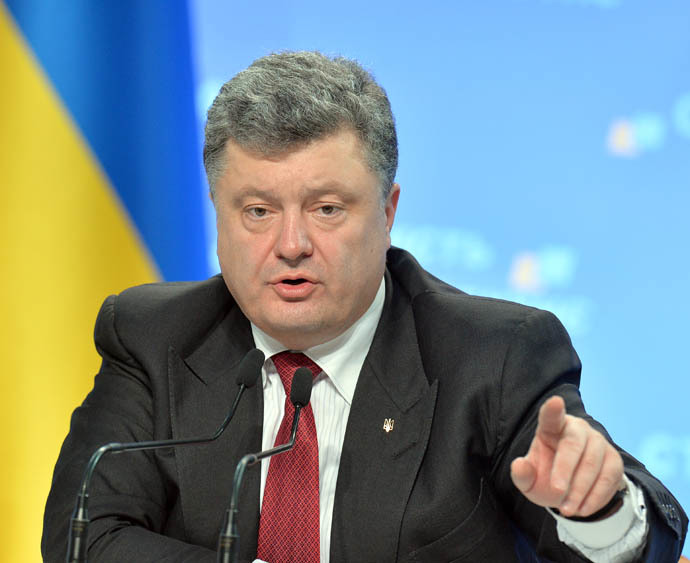
The next meeting is scheduled for October 29 and EU Energy Minister Gunther Oettinger expects an agreement to be inked.













